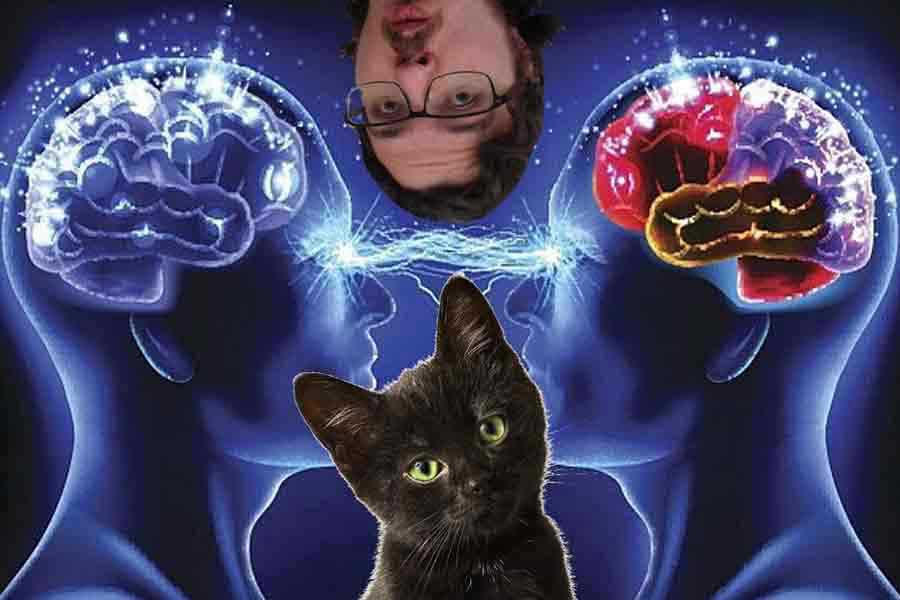Social comparisons trigger cortisol that ruins your mood, even if you don’t really want the life you see in others. You hate that neurochemical stab of yuckiness, yet you compare yourself to others again … and again. Here’s why your brain does this, and three simple steps that will change it.
Social Comparison is a Primal Impulse
An animal compares itself to others every time it reaches for food or a mating opportunity because it risks getting bitten if it reaches in front of a bigger critter. When an animal sees that it’s in the weaker position, cortisol is released and a threatened feeling motivates withdrawal. Brains that did this survived and made more copies of themselves, so that’s the brain we’ve inherited. Social comparison is more urgent than food or sex to our limbic brain because you can survive the loss of a meal or a mate better than you can survive an attack by a stronger individual.
You can end up feeling threatened a lot with a brain like this, despite your best intentions. You can find yourself dwelling on the celebrations of others, even if you would hate those events if you were actually at them. You can find yourself dwelling on the gifts received by others even though you would hate the clutter if you had them yourself. You imagine everyone else surrounded by loved ones who applaud their every step and ask nothing in return, even though no real people have such ideal lives. This habit of social comparison will ruin your holiday if you let it, and it will ruin your new year too.
We are all in the same boat, trying to manage the brain we’ve got. Fortunately, you can build your power over this natural impulse.
Here’s how to do it in three simple steps:
1. Accept your inner mammal.
Don’t hate yourself because your brain goes there. Accept that you are descended from mammals who learned to live in groups to protect their young from predators, and built the skill of social comparison to survive this proximity to others. Social comparison is part of being a social animal.
2. Recognize your old cortisol pathways.
Your brain makes unique individual social comparisons using the cortisol pathways built from your unique individual past experience. We humans are born with billions of neurons but very few connections between them. Our brain connects itself by interacting with the world. Each time you got hurt, or observed others getting hurt, connections got made that turn on your cortisol faster the next time. Your brain is designed to protect you from having to touch a hot stove twice, but you will end up seeing a world full of pain if you go with that flow.
3. Design and build new neural pathways.
The electricity in your brain flows like water in a storm, finding the paths of least resistance. Your electricity will flow into old pain pathways unless you build new pathways. Design the new neural circuit you’d like to have, such as “I fill my life with things that matter to me, and I don’t need to keep score.” Repeat that thought for 45 days and those neurons will connect. Your new year will be off to a great start as you give your electricity a new place to flow.
You may be thinking “this sounds fake,” or “why should I be happy with what I have when life is so unfair?” You think this because your old neural pathways are superhighways that channel your electricity effortlessly. Our brain is designed to wire itself in youth, when it’s full of myelin. This fatty substance coats neurons, making them superconductors of electricity. Anything you do with your myelinated neurons feels right – even when you know it’s wrong – because new neural pathways are so hard to activate. You feel safe when you rely on your old myelinated network because electricity flows easily, even though it motivates choices that are ultimately less safe. Blazing a new trail through your jungle of neurons takes practice, but it’s the challenge you were born to meet. We humans have billions of extra neurons just waiting for us to connect them up in new ways!
More on how to do this:
- Habits of a Happy Brain: Retrain your brain to boost your serotonin, dopamine, oxytocin and endorphin levels
- The Science of Positivity: Stop Negative Thought Patterns By Changing Your Brain Chemistry
- Why We Compare Ourselves to Others (South African Radio interview with me)
- The Nature of Hierarchy and the Curse of Social Comparison (slide show)

